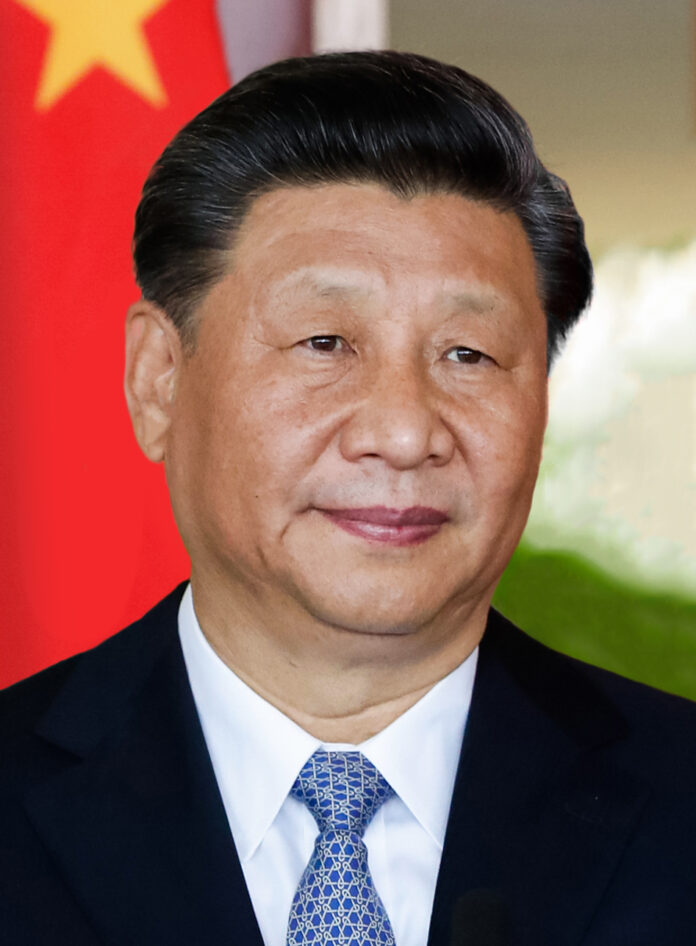
Chinese President Xi Jinping
A News Analysis by Sarafina Christopher, News Agency of Nigeria (NAN)
In contemporary African metropolises, from Lagos to Lusaka, the imprint of Chinese infrastructure is unmistakable.
New stadiums, overpasses, rail lines and industrial zones are now part of the urban landscape, transforming skylines and transport networks.
Public discourse; from taxi drivers to university lecturers focuses not only on the rapid pace of development but also on the origins of funding and the long-term implications for sovereignty.
For many, China’s presence symbolises modern progress.
However, for others, it brings back troubling memories of colonialism.
Supporters of China’s expanding role in Africa highlight the unprecedented nature of this relationship.
They reject colonial comparisons, emphasising mutual respect, infrastructure development, and the creation of economic opportunities.
For instance, Prof. Peter Kagwanja of Kenya observes that Chinese partners refrain from lecturing African nations on democracy or human rights, instead focusing on construction without political interference.
In a similar vein, Prof. Sheriff Ibrahim of the University of Abuja points out that China’s engagement offers genuine transformation through mutual trust, not through charity or condescension.
Between 2006 and 2024, Chinese investments in Africa surged from 5 billion to over 50 billion dollars, with funds channelled into roads, railways, credit lines, and energy projects.
China’s President Xi Jinping asserts that this is only the beginning of its continental engagement.
In 2024, the country unveiled the Partnership Action Plans, encompassing green development, agriculture, culture, connectivity, and trade.
As part of these initiatives, Chinese cultural centres now dot African cities, and an increasing number of African students are studying engineering and medicine in China.
Delving deeper, China is actively supporting Africa’s industrialisation.
The 2025–2027 Beijing Action Plan pledges backing for manufacturing, “Made in Africa” brands, special economic zones, industrial parks, and free trade zones.
The plan is aimed at boosting small and medium-sized enterprises, facilitating technology transfer, and expanding vocational training for youth and women.
Renewable energy and green transformations form another pillar, with solar and wind projects, green hydrogen schemes, and low-carbon industrial zones being rolled out in line with the African Union’s Agenda 2063.
In Morocco, China is involved in a 32.7 billion dollar green hydrogen initiative; in South Africa, it is building a 100 MW solar project; and in Nigeria, it has announced a 7.9 billion dollars green hydrogen-based methanol facility.
China is now Africa’s largest trading partner, with trade volumes exceeding 150 billion dollars annually.
The economic relationship, however, is complex.
Not everyone is convinced. Some African thinkers are asking tough questions: Is this really an equal partnership, or are we trading away our sovereignty for roads?
Makhura Rapanyane, a South African researcher, noted that many Chinese loans are tied to Africa’s oil, minerals, and land.
“We’ve seen this happen before,” he said. “Resources flow out, debt builds up, and we lose control.”
Also,Prof. Deborah Brautigam, who has spent years tracking Chinese financing in Africa, has a more nuanced take.
“The debt-trap narrative is overblown,” she says. “But that doesn’t mean we can afford to be naive. Vigilance is key”.
Africa gains access to Chinese markets and receives infrastructure funding, but the reliance on raw material exports and manufactured goods imports keeps trade imbalance concerns alive.
Diplomatic ties have also deepened through platforms such as the Forum on China–Africa Cooperation (FOCAC) and expanded embassy networks.
Beijing’s “no-strings-attached” aid model has appealed to many governments, contrasting with Western approaches, but it has also prompted fears of subtle influence over policymaking.
China’s reach extends beyond earthbound infrastructure into space partnerships.
Collaborations with 23 African nations now cover satellite technology, ground stations, and even lunar exploration, with analysts debating whether such moves are driven purely by development goals or also by strategic geopolitical positioning.
Yet, this surge in engagement has not been without environmental and social costs.
In Feb. 2025, a tailings dam at a Chinese-owned copper mine in Zambia collapsed, releasing 50 million litres of acidic waste into the Kafue River.
The spill destroyed aquatic ecosystems, contaminated water supplies, and killed tonnes of fish, leaving 700,000 residents without clean water.
The Zambian government was forced to deploy its air force to disperse lime and neutralise the toxins.
Elsewhere, large-scale Chinese projects have been linked to deforestation, water pollution, and displacement, such as in Ethiopia’s sugar plantations and Zambia’s Copperbelt mines.
Research has shown that Chinese foreign direct investment, especially in countries with weak governance, often accelerates the depletion of forests, energy, and natural resources.
In contrast, countries with stronger governance frameworks have achieved better environmental and economic outcomes.
Industrial carbon emissions have also risen in regions hosting resource-intensive Chinese projects, although investments in high-tech and renewable sectors may help offset these impacts.
Beyond land, Chinese fishing fleets have been implicated in overfishing and illegal practices in African waters, contributing to declining fish stocks and threatening coastal livelihoods.
Political leverage is another concern.
Reports have emerged of Chinese diplomats pressuring African lawmakers to withdraw from international coalitions critical of Beijing, with suggestions that diplomatic ties or funding could be at risk for those who refuse.
Analysts view such tactics as a warning that economic dependency can translate into political influence.
Against this backdrop, the question of whether China is a benevolent partner or a neo-colonial power remains contested.
On one hand, Chinese projects can stimulate economic growth, build critical infrastructure, and facilitate technological transfer.
On the other, they carry the risk of environmental degradation, debt dependency, and sovereignty erosion.
Much will depend on how African nations manage the relationship.
Strong institutional capacity, strict environmental regulations, transparent contract negotiations, and prioritising sectors that enhance local expertise could help ensure that the benefits of cooperation outweigh the costs.
African leaders, civil society, and citizens must remain vigilant and assertive, ensuring that agreements serve national interests, protect the environment, and uphold cultural values.
Ultimately, Africa’s development trajectory will be shaped not just by China’s intentions but by the continent’s own resolve.
If the partnership is managed strategically, with a focus on capacity-building, sustainability, and fair trade, it could be transformative.
If, however, short-term gains are pursued at the expense of long-term interests, history may repeat itself, under a different flag. (NAN)






